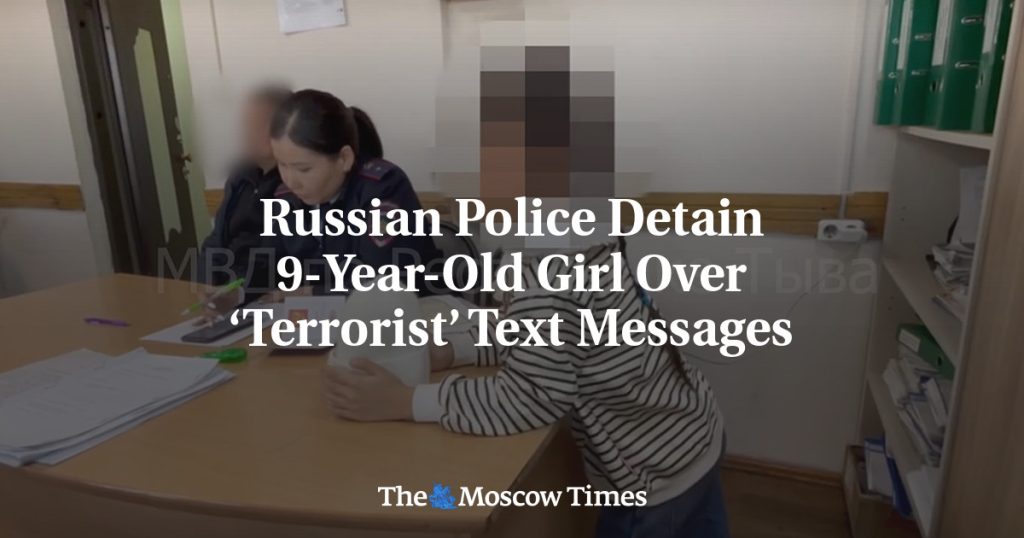In Tyva, Siberia, police detained a nine-year-old girl for allegedly encouraging strangers to commit acts of terrorism through text messages. The local branch of Russia’s Interior Ministry released a video showing the girl providing testimony to a police officer, but due to the lack of audio, the exact content of the conversation was unclear. Screenshots of the girl’s messages included an inquiry asking if someone could kill people for 500,000 rubles, a sum linked to a gunman responsible for a recent concert attack near Moscow. However, the chosen recipient declined the request, prompting the girl to mention the need for terrorists rather than defenders.
The young girl, not named by authorities, sent an apology to the receiver and requested that they not inform the Federal Security Service (FSB) following the exchange. Both the girl and her parents were detained in Chadan, with the mother facing charges for not properly caring for and raising her child. The police reported that the girl confessed to sending the message out of boredom to an unknown contact saved on her sister’s phone. Law enforcement officials mentioned considering additional charges in the case, emphasizing that calls for terrorism online and the failure to report criminal activities are punishable offenses.
This incident raises concerns about the use of technology by minors to engage in illegal activities such as encouraging terrorism. The misinformation in the video shared by the Interior Ministry due to the absence of audio made it challenging to discern the exact content of the conversation between the girl and the police officer. The nature of the conversation and the text message content released to the public spark discussions about the accessibility of technology and the impact it has on young individuals, who may not fully comprehend the consequences of their actions.
The apology text sent by the girl to the recipient showcased a level of awareness of the seriousness of her actions, though it was motivated by a fear of potential consequences rather than a genuine understanding of the implications of promoting terrorism. The involvement of the FSB in the case highlights the severity with which authorities treat acts that could threaten national security, even when involving minors. The charges brought against the mother for failing to fulfill her obligations regarding her child’s care underline the importance of parental supervision in monitoring children’s activities, especially with regards to online behavior.
Authorities in Tyva are considering further legal actions against the girl for her actions, underscoring how seriously they view such offenses and the potential punishment involved. The prospect of a seven-year prison sentence for calling for terrorist activities online underscores the zero-tolerance approach to any behavior that could endanger public safety. The conflicting motivations behind the girl’s messages, from boredom to a misguided attempt at what she thought was a joke, demonstrate the complexity of addressing such issues involving minors engaging in criminal activities through modern communication channels. This incident presents an opportunity to evaluate measures to prevent and address the misuse of technology by young individuals, ultimately aiming to protect society and promote responsible online behavior.















